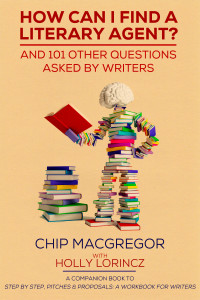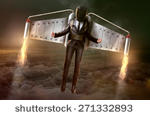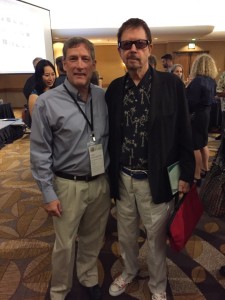- Agents
- Author News, Deals
- Awards
- Bad Poetry
- Blog News
- Books
- Career
- CBA
- Collaborating and Ghosting
- Conferences
- Current Affairs
- Deep Thoughts
- Favorite Books
- Featured
- Film
- Marketing and Platforms
- Proposals
- Publishing
- Questions from Beginners
- Quick Tips
- Religion
- Resources for Writing
- Self-Publishing
- Social Media Critique
- The Business of Writing
- The Writing Craft
- Thursdays with Amanda
- Trends
- Uncategorized
- Web/Tech
Category : Uncategorized
-
Continue Reading "Thinking about Writing: Effective Dialogue, Part 2 (The Sooner the Better)"
Thinking about Writing: Effective Dialogue, Part 2 (The Sooner the Better)
 If you caught Tuesday’s post, you’ll know I’m spending a few days talking about good dialogue in fiction– how to write it, how not to write it, how to recognize it, and who does it well.
If you caught Tuesday’s post, you’ll know I’m spending a few days talking about good dialogue in fiction– how to write it, how not to write it, how to recognize it, and who does it well.One of the suggestions I often make when reading manuscripts is for the author to use dialogue earlier. In general, the more pages that pass without hearing a character speak, the more distanced I feel from her and the longer it takes for me to engage with/care about her. The most common source of this problem seems to be the author’s compulsion to tell the reader EVERYTHING he knows about a character right away. I’ve lost track of how many manuscripts I’ve read that started out with a literal biography of the main character from childhood to the events of the story– what she was like in high school, how many relationships she’s been in, what her friends are like, what her work history is, etc . While it’s important for the author to know all this so he can write intelligently about the character, the reader doesn’t need to find out all the background info at once (or ever, in some cases). My favorite way to get to know a character is to hear him talk and to see how he interacts with other characters and his environment; to be dropped in the middle of this character living and breathing rather than shown his baby album and medical records, and so I frequently encourage authors to examine whether they need to pare down their opening content in order to get to the first “live” scene sooner. Now, obviously I’m not saying there’s a hard-and-fast rule for how early in a manuscript dialogue should appear, or that you should manufacture some if it’s not a natural place for it, but how do you make that call? Though by no means a comprehensive list,
-
Continue Reading "Thinking about Writing: Effective Dialogue, Part 1"
Thinking about Writing: Effective Dialogue, Part 1
 “Stories are told in action and dialogue.”
“Stories are told in action and dialogue.”I don’t remember a whole lot from my fiction writing classes in college– judging by the notes I scribbled in the margins of my carefully-preserved notebooks from that era, my attention during these classes was mainly focused on what items I needed from the grocery store and the correct ear-to-head ratio of a classic Mickey Mouse outline. That being the case, it stands to reason that my various professors must have all hit the “action and dialogue” rule pretty hard for it to have broken through the hungry-doodling haze and stuck with me all these years. While all the poets reading this are already clamoring that I’ve forgotten narrative/description, let’s run with this simplified definition of story for a few weeks while we talk about crafting effective dialogue. I’ll be talking about the role of dialogue in storytelling, achieving balance between action and dialogue, and common dialogue problems and how to avoid them, but today, I thought I’d tackle one specific element of dialogue which has the potential to derail even the most eloquent exchanges of dialogue: attribution.
Attribution is the means by which a writer informs the reader who said what and (sometimes) how they said it. What I’ve noticed after reading millions (more or less) of manuscripts is that someone can actually be pretty good at writing dialogue and still be lousy at attribution; the two don’t necessarily go hand-in-hand. The good news for these writers is that bad attribution habits are pretty easy to recognize and to break, once you’re aware of them. Most attribution offenses I see fall into one of three camps:
1. The “said” synonyms. Answered, retorted, chortled, whispered, exclaimed, muttered, queried, replied, agreed, voiced, uttered, pronounced, laughed, joked, lamented, groaned, mourned, insisted, demanded, raged, fumed– there are literally dozens of synonyms for “said,” and yes, sometimes one of them is just the tool you
-
Continue Reading "8 Common Usage Errors, or: How to Make Me Judge You, part 1."
8 Common Usage Errors, or: How to Make Me Judge You, part 1.
 Erin here again today, while Chip is sunning himself in Hawaii (and I’m still working on getting my own blog credentials so I can stop using Amanda’s.) Okay, listen: I have a superpower. Most agents do, actually. It’s not terribly useful unless you’re trying to decide whether or not to stake a large amount of time and energy on a person’s potential as a writer, but it comes in real handy in that situation. My superpower, which I share with many agents and editors, is this: I can pass judgement on a person’s writing after reading just a few pages. A few paragraphs, in some cases. Heck, I’ve read some opening sentences that have deterred me from reading any further (see Tuesday’s post for the discussion on effective opening lines), and generally, the criteria that make it easiest to say no to a project are recurring errors in how words are used or spelled and a complete “spray and pray” approach to punctuation (in which the author loads a machine gun with commas, apostrophes, and quotation marks, sprays the manuscript with them, and prays everything lands in approximately the right place). That doesn’t seem fair, the general public may cry, my writing gets really good in chapter two! Or, my story is so compelling, you won’t even notice the mistakes once you get hooked.
Erin here again today, while Chip is sunning himself in Hawaii (and I’m still working on getting my own blog credentials so I can stop using Amanda’s.) Okay, listen: I have a superpower. Most agents do, actually. It’s not terribly useful unless you’re trying to decide whether or not to stake a large amount of time and energy on a person’s potential as a writer, but it comes in real handy in that situation. My superpower, which I share with many agents and editors, is this: I can pass judgement on a person’s writing after reading just a few pages. A few paragraphs, in some cases. Heck, I’ve read some opening sentences that have deterred me from reading any further (see Tuesday’s post for the discussion on effective opening lines), and generally, the criteria that make it easiest to say no to a project are recurring errors in how words are used or spelled and a complete “spray and pray” approach to punctuation (in which the author loads a machine gun with commas, apostrophes, and quotation marks, sprays the manuscript with them, and prays everything lands in approximately the right place). That doesn’t seem fair, the general public may cry, my writing gets really good in chapter two! Or, my story is so compelling, you won’t even notice the mistakes once you get hooked.
People, people.
I got my degree in English. In case you don’t know, English majors basically do two things in college: read and write. This means that we not only become very familiar with the rules of grammar and mechanics that some of the rest of the world forgets after middle school, but we SEE those rules in action in book after assigned book, and the main result of that language-based education is an inability to read anything– books, cereal boxes, instruction manuals, the birth announcement for our best friend’s baby (“Its a boy?” Really?)– -
Continue Reading "Ask the Agent: How do I get the most out of a writers’ conference?"
Ask the Agent: How do I get the most out of a writers’ conference?
I had someone write in to say they were attending three writing conferences this summer, and asked me, “What advice would you have for me to get the most out of the conferences?”
I love writing conferences, since it gives you a chance to network with other writers, see what’s going on in the industry, meet editors and agents, and get away from the routine for a few days. As you begin preparing for this year’s writing conferences, I’d like to suggest you keep 10 words in mind . . .
1. READ. Don’t just show up and act surprised at who the speakers are. Read the blog of the keynoter. Read the books of the teachers who are doing workshops. That way, when you get to hear them, you’ll already have a context for their information.
2. RESEARCH. If you’ve signed up to meet with an agent or editor, check out their bio, see what they’ve acquired, and get a feel for the sort of books they like. By doing that, you’ll be much more apt to talk with someone who is a fit for you and your work.
3. ORGANIZE. Before you show up at the conference, look at the schedule and figure out what sessions you’ll attend, which ones you’ll miss (so that you can share notes later), and when you can take a break to see friends.
4. PRACTICE. When you sit down across from me in order to tell me about your book, it shouldn’t be an off-the-cuff conversation. Practice what you want to say, how you want to describe your work, and what your hook is so that you’ll grab me.
5. GOALS. Ask yourself what your goals are for this year’s conference. Don’t just go with vague hopes. Plan to attend with some specific, measurable goals in mind. Write them down beforehand so you can evaluate yourself
-
Continue Reading "What’s the seventh step in marketing your book?"
What’s the seventh step in marketing your book?
Okay, you’ve come to the point in the process where you really get into the details… you’ve done a bunch of research. You know who you are, and what it is you want to say. You’ve figured out who your audience is, and done some research on how to reach them. You’ve made choices about the general strategies you’ll use to get your words in front of potential readers, and you’ve decided what your specific plans are — where you’ll go and what you’ll say. Now you’ve got to write it all down.
You probably think this is too simple, that you’re waiting for some secret to making marketing work. Well, this is it. Write it down. Put down on paper all the things you want to do. All those tools you were choosing yesterday? Write them down. All those places you want to reach? Write them down. All the audiences you want to stand in front of? Write it down. Get down on paper everything you want to do. Force yourself to get everything in one place, since it will make it much more real (and therefore more likely that you’ll actually DO it).
So if you’re going to do a blog tour, and visit 30 blogs in 30 days, here is where you write down the goal, then note the actual blogs you intend to target, and make notes on how you’re going to reach out to them and what you’re going to talk about. If you’re going to be focusing on talk radio, here’s where you right down the places you want to hit — the cities, the regions, even the shows and stations if you know what they are. Write down notes about what questions you expect to be asked, and how you plan to answer them. Prepare stories — both long and short stories, that will get your point across and entertain listeners. If you’re
-
Continue Reading "What do I need to know about agents?"
What do I need to know about agents?
Someone wrote to ask, “With all the changes in publishing these days, what do I really need to know about agents?” Let me offer a dozen thoughts…
1. Do your homework before selecting an agent. DON’T sign up with somebody just because they say
 they’re an agent and they want to represent you. I know that’s a temptation, but this is a professional relationship. Would you go to a guy’s office for your health problems just because he claims to be a doctor? Ask around. Check him out. This is the biggest mistake people make with agents, in my view. This past year at ACFW you could toss a rock in the air and when it came down it would most likely hit somebody claiming to be an “agent.” Um… these guys are going to be taking your ideas and helping you sign legal agreements regarding them. Don’t take that lightly.
they’re an agent and they want to represent you. I know that’s a temptation, but this is a professional relationship. Would you go to a guy’s office for your health problems just because he claims to be a doctor? Ask around. Check him out. This is the biggest mistake people make with agents, in my view. This past year at ACFW you could toss a rock in the air and when it came down it would most likely hit somebody claiming to be an “agent.” Um… these guys are going to be taking your ideas and helping you sign legal agreements regarding them. Don’t take that lightly.2. Be wary of any agent who charges a fee or advertises what the charge is to work with them. That’s a total violation of the guidelines for the Association of Author Representatives (and, in fact, those agents wouldn’t be allowed as members of AAR). There are a couple fairly successful agents in CBA who do that. It’s unethical, and authors should stay away, if they want to keep from being scammed. On the other hand, I was VERY glad to have someone write and tell me that “Steve Laube is my agent and he’s good.” Don’t we all get tired of people sort of beating around the bush, telling us one person is bad and another is good, but never mentioning names? The fact is, Steve IS good. So is Bryan Norman at Alive, as well as Janet Grant and Wendy Lawton and Rachelle Gardner and Natasha Kern and Greg Daniel and Karen Solem and Greg Johnson and Andrea Heinecke and Robert Wolgemuth and Sandra Bishop and Amanda
-
Continue Reading "And for an Additional Fee, We’ll Build a Machine to Read it for You as Well"
And for an Additional Fee, We’ll Build a Machine to Read it for You as Well
Publishing & Technology: And for an Additional Fee, We’ll Build a Machine to Read it for You as Well
Brian Tibbetts is a literary agent with MacGregor Literary. Every Wednesday, Brian posts about trends in the publishing industry and developments in technology that impact the industry. You can find him on Twitter @BRIANRTIBBETTS
This week in Publishing & Technology we’ll be talking machine learning, curated content, and discoverability. This week in Digital Book World Yasmine Askari reported on the launch of Canadian company Intellogo and their machine-learning based software’s potential applications in the publishing industry. According to the article, the new software will use machine learning to help publishers compare manuscript submissions with their current and back catalogs as well as using consumers read lists to custom tailor offerings by reader preference.
As anyone who has struggled to find good comps for a potential project can attest, this might be a fantastic new tool for editors in evaluating potential projects. Then again, it might be another step toward the automation of already tenuous positions. Regardless, it’s sure to help further maximize profitability forecasting, erroneous or otherwise.
What seems far more chilling is the idea that machine learning can use algorithms to mine our preferences and customize what we see as available for purchase. Discoverability is the core of successful book marketing. Using machine learning, tweaked as it will inevitably be to showcase content that is most likely to drive sales, will inevitably narrow the titles presented to readers rather than expanding it. And, If this argument seems a little too familiar, refresh yourself with another look at Mike Shatzkin’s oft referred to post Do ebook consumers love bestsellers, or does it just look that way? In which he argues that commerce (as expressed through a variety of factors) and not consumer preference, is the primary driving force behind the continuing success of best sellers, in terms of discoverability.
-
Continue Reading "Literary Jetpacks for All!"
Literary Jetpacks for All!
Publishing & Technology: Literary Jetpacks for All!
Brian Tibbetts is a literary agent with MacGregor Literary . Every Wednesday, Brian posts about trends in the publishing industry and developments in technology that impact the industry. You can find him on Twitter @BRIANRTIBBETTS
. Every Wednesday, Brian posts about trends in the publishing industry and developments in technology that impact the industry. You can find him on Twitter @BRIANRTIBBETTSThis week in Publishing & Technology we’ll be talking about innovation, “publishing’s jetpack,” and the Dutch “Renew the Book” competition. If you are of a certain age and inclination, then you probably remember eyeing Jean-Luc Picard’s Kindle-like reading device with understandable envy. You may have even been pleasantly surprised to see that one piece of twenty-fourth century technology appear at the beginning of the twenty-first century. But would you really call the advent of the e-reader a revolution in the way books are used and enjoyed? Setting aside the incredible leaps in technology that it’s taken us to get to the age of the smartphone, tablet, and e-reader, it’s still difficult to see the ability to read digital text as “publishing’s jetpack.”
As Editor-in-Chief of Publishing Perspectives, Edward Nawotka reports in an editorial in this month’s edition of his newsletter, something more disruptive, more pillar-shaking, may be on the way if the Dutch Publishers Association’s “Renew the Book” project yields the results that it has the potential to. Five companies are about to relocate to Amsterdam for forty days and forty nights of non-stop innovation. In the end, the winner will take home a prize of 15,000 Euros. Let’s hope they actually create something akin to a literary jetpack with that money. I for one am ready to take to the literary skies. For more information on the contest and the participating startups check out this article on the Dutch News website, or renewthebook.com
-
Continue Reading "Editing for Authors: Part 4b, The Great and Powerful Style Sheet"
Editing for Authors: Part 4b, The Great and Powerful Style Sheet
 Welcome back to my series on editing for authors. Last week, I started to talk about the role of a style sheet in the editing process, specifically the story and character-related elements. This week, we’re looking at the craft and style-related elements of a style sheet, as well as how to use a style sheet to focus your editing.
Welcome back to my series on editing for authors. Last week, I started to talk about the role of a style sheet in the editing process, specifically the story and character-related elements. This week, we’re looking at the craft and style-related elements of a style sheet, as well as how to use a style sheet to focus your editing.As I said last week, style sheets are largely descriptive rather than prescriptive– in other words, your style sheet is based on the writing voice/habits that are already in evidence in your manuscript. When you’ve finished a draft of a manuscript and are ready to start editing, you want to look at your manuscript and determine which conventions you’ve used most often and which ones you want to define your voice, and build your style sheet accordingly, adding entries addressing usage, punctuation, spelling, style, and formatting questions that will arise as you edit your manuscript.
For example, if you hyphenated a word the first three or four times you used it (“birth-mother”), you would probably make the hyphenated version an entry on your style sheet, the idea being that you will use that entry as a reference by which to determine that you will alter any subsequent uses of that word where you didn’t hyphenate it. If, however, you hyphenated it the first time but then used it seven more times in the first three chapters without hyphenating it, you’d probably want to let the majority dictate your style-sheet entry, and use the non-hyphenated version as the rule to be followed on your style sheet, since, again, the goal of a style sheet is to define the elements of your style that are already in evidence in your writing and your voice so that you can ensure that they are reflected in your whole manuscript, since precious few of us write with perfect consistency throughout a 75,000-word manuscript. Use this
-
Continue Reading "I’m a Writer Because I Write"
I’m a Writer Because I Write
A writing friend sent me this question: “Are you a writer because of your distinctive ideas, the volume of material you produce, or because of a call or skill or gift?”
None of the above. I’m a writer because I write. It’s my venue for sharing truth and beauty and all that is important to me. It’s how I express myself. My friend Rebecca is a singer because she puts herself into her songwriting and musical performance. My buddy Brad is a doctor because that’s how he connects to the world and shares himself and his abilities. Maybe that constitutes a calling — it’s certainly a gift. But I’ve always seen books and words as a reflection of who I am. Some of us have to write, the way others have to sing or run or paint or speak or run or lead. With me, words tend to pour out.
The thing that doesn’t get talked about very much is the fact that not everybody can be a writer, and few of us can ever be great writers. I’m all for writing conferences, because I often get to meet and encourage diamonds in the rough. And I’m a big supporter of mentor/protégé relationships because they allow an experienced person to share with an inexperienced person. But I’ve come to believe there’s a limit to the talent that can be shared. I believe I can make a writer better, but I’m not convinced I can ever make a writer great — some people just have the gift. Some people can paint, some people can sing, some people can dance – we can write.
Occasionally I come across a writer whose talent is enormous, and it usually leaves me in
 awe. I love that. At a conference this past weekend, I had a chance to host a salon with one of my favorite writers, Tom Robbins — an author whom many believe
awe. I love that. At a conference this past weekend, I had a chance to host a salon with one of my favorite writers, Tom Robbins — an author whom many believe





